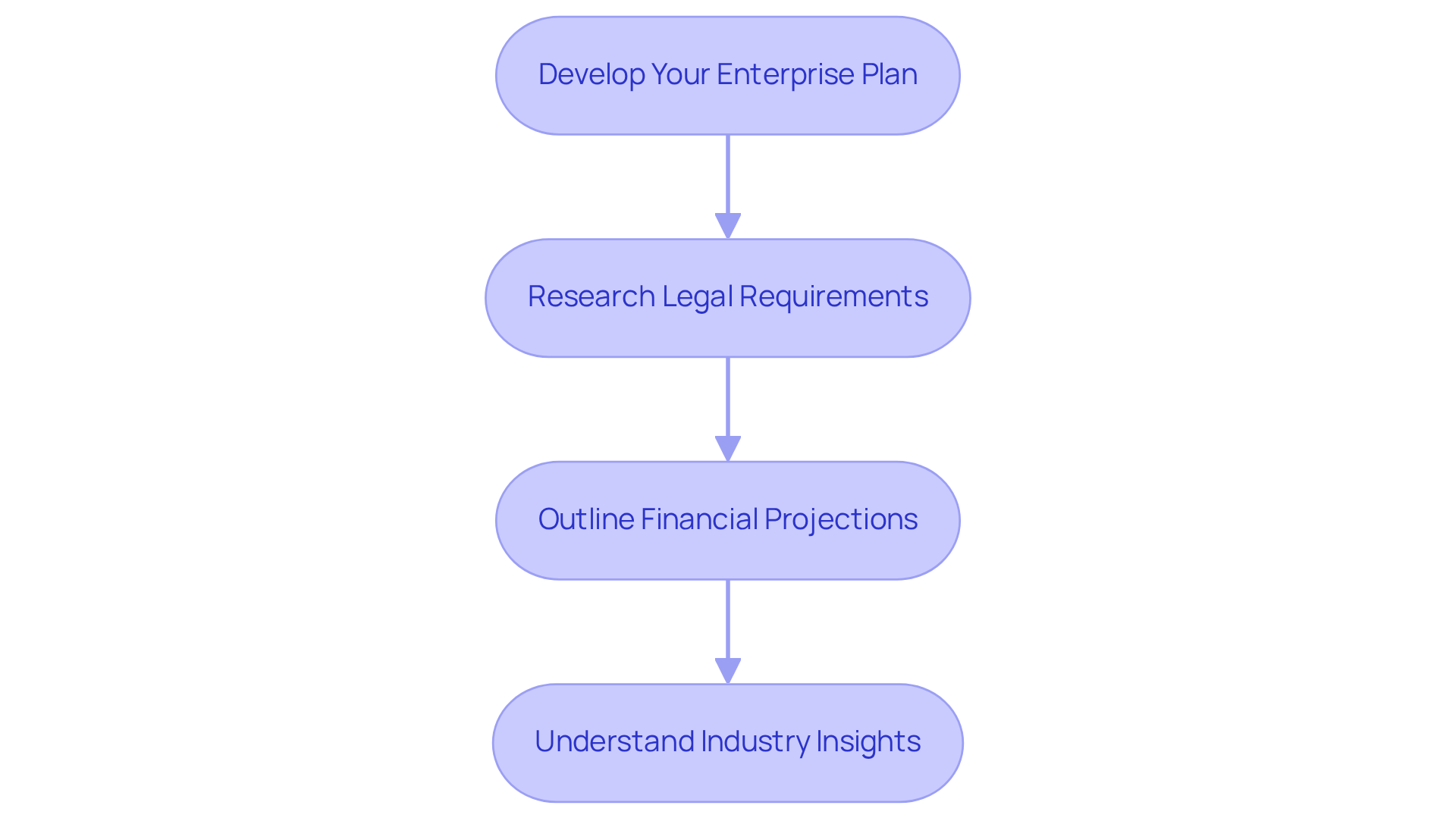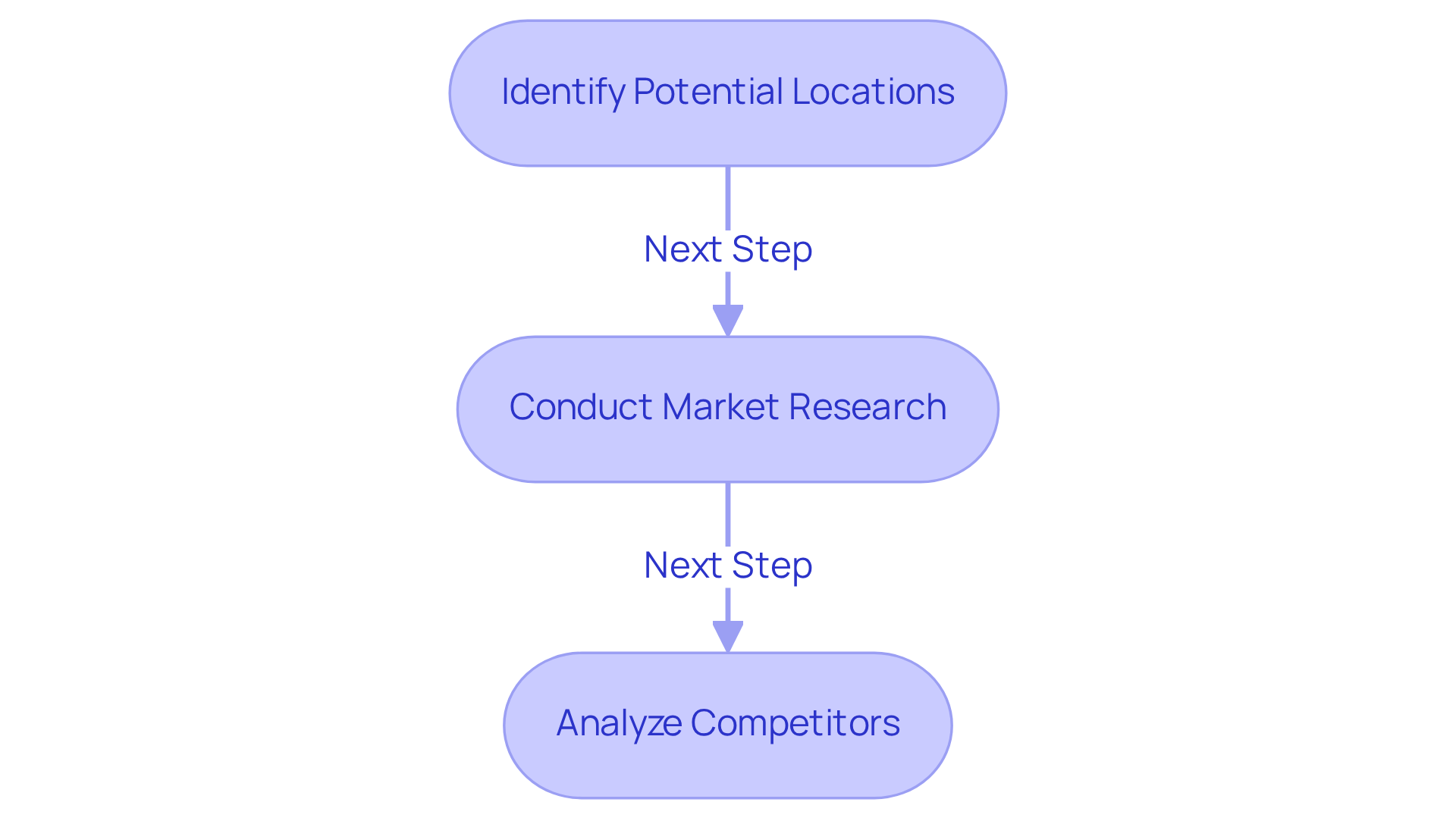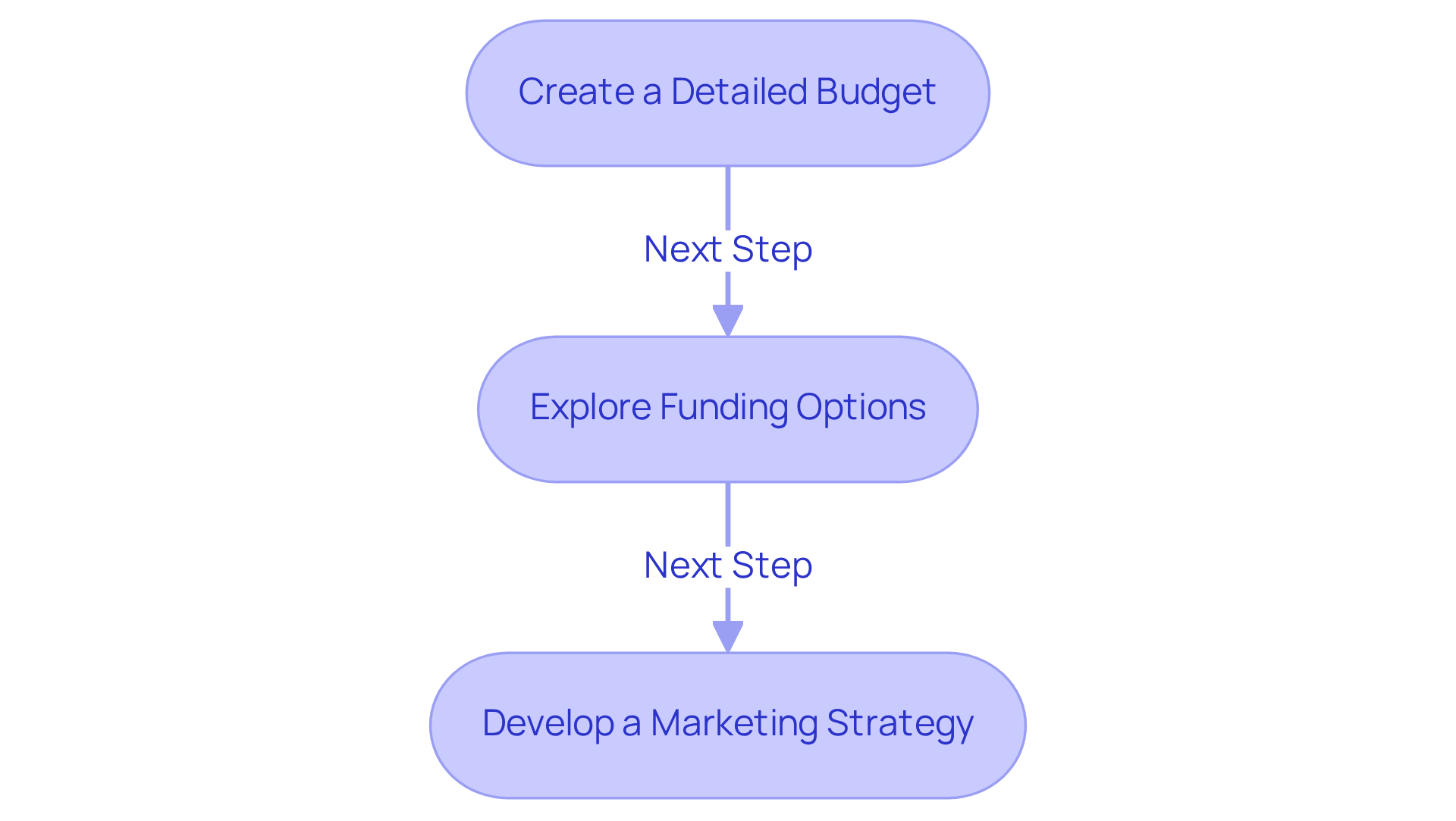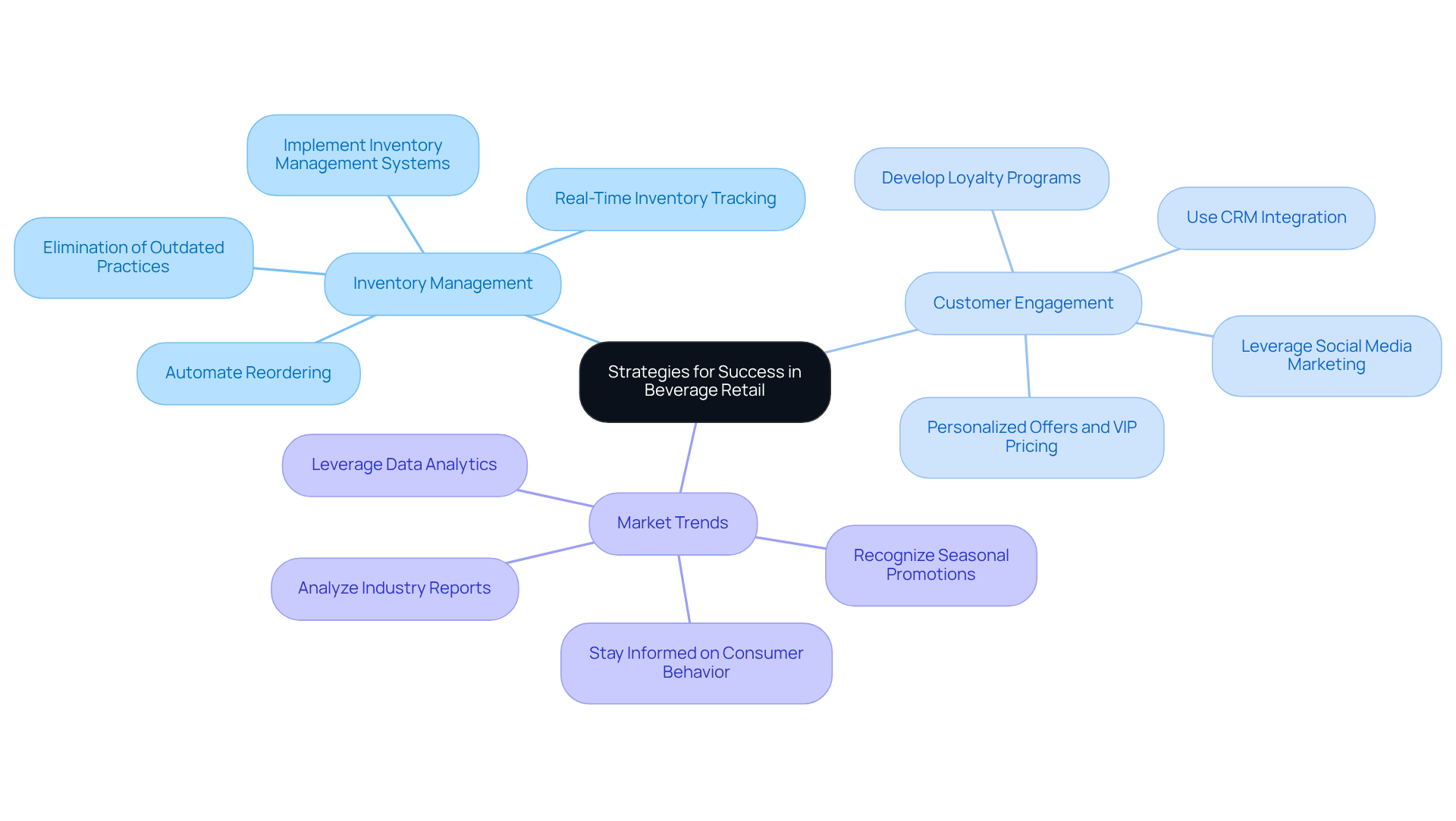Overview
To successfully launch a wine shop, entrepreneurs must:
- Formulate a comprehensive business plan
- Grasp legal requirements
- Choose an optimal location
- Devise a robust marketing strategy
Meticulous planning—encompassing financial projections and market research—is crucial for navigating the competitive landscape and ensuring regulatory compliance. This strategic approach ultimately positions the wine shop for success, empowering entrepreneurs to thrive in a challenging market.
Introduction
Embarking on the journey of starting a wine shop represents a captivating venture, harmonizing a passion for exquisite beverages with the excitement of entrepreneurship. Yet, the road to success is not without its hurdles; it is paved with essential steps demanding meticulous planning and strategic execution.
Aspiring wine shop owners must adeptly navigate a multifaceted landscape encompassing:
- Legal requirements
- Market analysis
- Customer engagement strategies
What are the critical elements that can determine the fate of this endeavor, and how can one ensure their shop distinguishes itself in a fiercely competitive market?
Develop a Comprehensive Business Plan and Understand Legal Requirements
-
Develop Your Enterprise Plan: Begin by outlining your operational model, target audience, and unique selling proposition (USP). Your plan must encompass sections on market analysis, competitive landscape, and how to start a wine shop. Utilizing online templates can significantly aid in structuring your plan effectively, ensuring that all essential aspects are thoroughly covered.
-
Research Legal Requirements: It is imperative to thoroughly investigate the licenses and permits necessary to operate a beverage retail establishment in your area. This typically includes obtaining a retail liquor license, sales tax permit, and health department permits. Engaging with a legal expert is crucial for understanding how to start a wine shop, as it helps navigate the complex regulatory landscape and ensures compliance with all local laws.
-
Outline Financial Projections: Your business plan should meticulously detail startup costs, projected revenue, and a break-even analysis. In 2025, typical startup expenses for beverage stores can range from $1,000 to $5,000, depending on location and size. Understanding these financial metrics is essential for evaluating how to start a wine shop and attracting potential investors or lenders.
-
Understand Industry Insights: Industry leaders emphasize the importance of grasping legal requirements in beverage retail. As one expert noted, 'Navigating the legal landscape is essential for success in the wine industry.' This understanding not only aids in compliance but also positions your business favorably within a competitive market.

Select an Optimal Location and Conduct Thorough Market Research
-
Identify Potential Locations: To maximize customer attraction, seek out areas characterized by high foot traffic, such as bustling shopping districts or locations adjacent to popular dining establishments. Prioritize visibility, accessibility, and ample parking, as these factors are essential for effectively drawing in customers.
-
Conduct Market Research: Implement a diverse array of research methods, including surveys, focus groups, and online analysis, to gather crucial insights on local beverage preferences, pricing strategies, and competitor offerings. Utilizing tools like Google Trends can reveal which beverage types are gaining traction in your area, enabling you to adjust your inventory to meet demand.
-
Analyze Competitors: Undertake comprehensive visits to nearby liquor stores to assess their product selections, pricing structures, and customer service methodologies. To learn how to start a wine shop, identify market gaps that your shop can exploit, such as offering unique wine varieties or specialized services tailored to local tastes. This competitive analysis is vital for effectively positioning your company within the market.

Establish a Budget, Secure Funding, and Create a Marketing Strategy
-
Create a Detailed Budget: Start by outlining all startup costs, encompassing inventory, rent, utilities, and marketing expenses. It is crucial to allocate resources for unforeseen expenses, as initial financial pressure can jeopardize your enterprise's viability. For instance, the overall pre-opening costs for a bar can range from $20,000 to $120,000, with upscale establishments estimating budgets between $80,000 and $150,000. This highlights the need for meticulous financial planning.
-
Explore Funding Options: Investigate various funding sources, including personal savings, bank loans, and potential investors. Grants specifically designed for small businesses in the food and beverage sector can also provide significant support. For example, the New York Wine & Grape Foundation offers grants up to $1,000 for members and $500 for non-members for promotion and marketing, which can substantially enhance your startup's visibility.
-
Develop a Marketing Strategy: Formulate a marketing plan that integrates both online and offline tactics. To effectively promote your wine shop, utilize social media, email marketing, and local events while also understanding how to start a wine shop. Collaborating with local wineries for tastings and promotions is a great way for aspiring entrepreneurs to learn how to start a wine shop while attracting patrons and strengthening community relationships. As industry specialists emphasize, understanding your client base and their preferences is vital for crafting a compelling marketing narrative that resonates with your audience. Additionally, consider the importance of location, as it greatly influences convenience for clients and foot traffic.

Manage Inventory, Foster Customer Engagement, and Adapt to Market Trends
-
Implement Inventory Management Systems: Leverage advanced software solutions, such as Cheers POS, to meticulously monitor inventory levels, sales trends, and reorder points. This proactive strategy significantly mitigates the risk of stockouts and overstock situations, ensuring that consumer demand is met efficiently while managing costs effectively. Cheers POS automates reordering processes, generating purchase orders when stock levels dip, thereby enhancing operational efficiency and alleviating the burden on staff.
-
Engage with Clients: Develop loyalty programs and organize wine tastings to elevate the client experience, converting casual buyers into devoted club members. Engaging with clients through social media platforms not only fosters community but also facilitates real-time feedback. Research indicates that tailored experiences can transform ordinary transactions into lasting relationships, markedly enhancing client retention. For instance, beverage retailers utilizing CRM integration in their POS systems, like Cheers POS, can track client preferences and purchase history, enabling personalized interactions that resonate with individual buyers. Moreover, when a beverage is included in a grocery basket, the basket size increases by 65%, underscoring the significance of effective customer engagement and cross-promotional strategies.
-
Stay Informed on Market Trends: Consistently analyze industry reports and consumer behavior studies to identify emerging trends. This insight empowers beverage retailers to adapt their product selections and marketing strategies in response to evolving consumer preferences. For example, recognizing that seasonal promotions, such as holiday beverage gift sets and Valentine's Day specials, can create urgency and drive sales. By remaining attuned to market dynamics and implementing strategic capital planning, wine retailers can bolster their competitive edge and better serve their clientele.

Conclusion
In conclusion, starting a wine shop demands not just careful planning, but a strategic approach that comprehensively understands both the market and the legal landscape. A well-crafted business plan serves as the cornerstone, detailing operational strategies, financial projections, and adherence to local regulations. This foundational work positions aspiring entrepreneurs for success in the competitive wine retail sector.
Key steps to consider include:
- Selecting an optimal location that maximizes customer traffic
- Conducting thorough market research to discern consumer preferences
- Establishing a budget that accommodates both startup costs and ongoing expenses
- Securing funding through diverse avenues
- Developing a compelling marketing strategy to attract and retain customers
- Effective inventory management
- Fostering customer engagement to enhance the shop's appeal and operational efficiency
Ultimately, the success of a wine shop hinges on a proactive approach that not only embraces market trends but also prioritizes customer relationships. By continuously adapting to consumer needs and preferences, wine retailers can thrive in a dynamic marketplace. Those embarking on this entrepreneurial journey should take these essential steps to heart, ensuring they are well-equipped to navigate the complexities of the wine retail landscape.
Frequently Asked Questions
What should be included in a comprehensive business plan for starting a wine shop?
A comprehensive business plan should outline your operational model, target audience, unique selling proposition (USP), market analysis, competitive landscape, and the steps to start a wine shop. Utilizing online templates can help structure the plan effectively.
What legal requirements must be researched before starting a wine shop?
It is essential to investigate the licenses and permits needed to operate a beverage retail establishment, which typically include a retail liquor license, sales tax permit, and health department permits. Consulting with a legal expert is recommended to navigate the regulatory landscape.
What financial projections should be included in a business plan for a wine shop?
The business plan should detail startup costs, projected revenue, and a break-even analysis. In 2025, typical startup expenses for beverage stores can range from $1,000 to $5,000, depending on location and size.
Why is understanding industry insights important for starting a wine shop?
Understanding industry insights, particularly legal requirements, is crucial for success in the wine industry. It aids in compliance and positions the business favorably within a competitive market, as highlighted by industry leaders.




